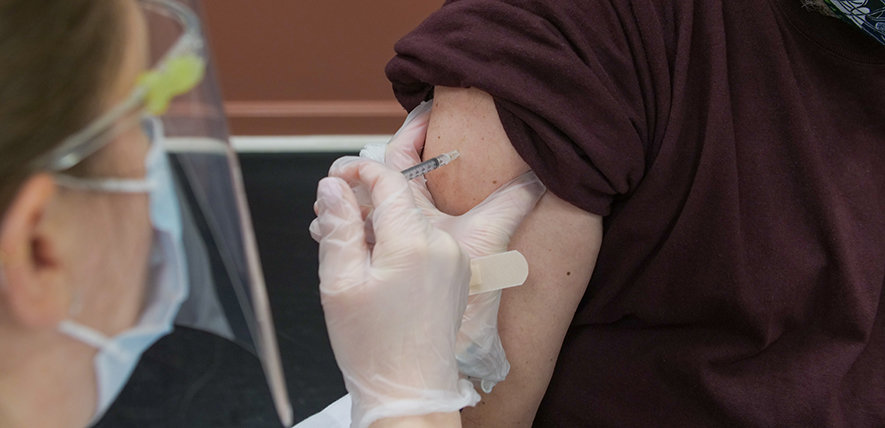
In a new study published in The Lancet Infectious Diseases, researchers at Public Health England and the MRC Biostatistics Unit, University of Cambridge, found that the estimated risk of hospital admission was two times higher for individuals diagnosed with the Delta variant of the SARS-CoV-2 virus, compared to those with the Alpha variant, after adjusting for differences in age, sex, ethnicity, deprivation, region of residence, date of positive test and vaccination status. When broadening the scope to look at the risk of either hospital admission or emergency care attendance, the risk was 1.45 times higher for Delta than Alpha.
This is the largest study to date to report on the risk of hospitalisation outcomes for cases with the Delta compared to the Alpha variant, using 43,338 Alpha and Delta cases confirmed through whole-genome sequencing who tested positive for COVID-19 between 29th March and 23rd May 2021. It is crucial to note that most of the Alpha and Delta cases in the study were unvaccinated or only partially vaccinated: 74% were unvaccinated, 24% were partially vaccinated, and only 2% were fully vaccinated. The results from this study therefore primarily tell us about the risk of hospital admission for those who are unvaccinated or partially vaccinated. Given the small number of hospitalised vaccinated cases, it has not been possible to estimate reliably if the hospitalisation risk differed between Delta and Alpha cases who had been fully vaccinated.
The Delta variant is now the most common SARS-CoV-2 lineage in several higher-income and lower-income countries on all continents, currently accounting for more than 99% of new cases in England [2]. The evidence provided in this study therefore has implications for healthcare practice, planning and response in countries with ongoing or future Delta variant outbreaks, particularly in unvaccinated or partially vaccinated populations. As previous studies have shown Delta and Alpha spread more rapidly than previous variants [2–4], the combination of faster transmission and the current study’s finding of higher risk of severe disease requiring hospital admission in unvaccinated populations implies a more severe burden on healthcare of Delta outbreaks than of Alpha epidemics.
Previous studies have shown the available COVID-19 vaccines are highly effective against symptomatic infections with the Alpha variant [5], and are effective against symptomatic infections with the Delta variant, particularly after a full vaccination cycle with two doses [6,7]. For those who despite vaccination become infected, the vaccination protects against admission to hospital [8].
Dr Anne Presanis, Senior Statistician at the MRC Biostatistics Unit said:
“Our analysis highlights that in the absence of vaccination, any Delta outbreaks will impose a greater burden on healthcare than an Alpha epidemic. Getting fully vaccinated is crucial for reducing an individual’s risk of symptomatic infection with Delta in the first place, and, importantly, of reducing a Delta patient’s risk of severe illness and hospital admission.”
Dr Gavin Dabrera, Consultant Epidemiologist at Public Health England, said:
“This study confirms previous findings that people infected with Delta are significantly more likely to require hospitalisation than those with Alpha, although most cases included in the analysis were unvaccinated.
We already know that vaccination offers excellent protection against Delta and as this variant accounts for over 99% of COVID-19 cases in the UK, it is vital that those who have not received two doses of vaccine do so as soon as possible.
It is still important that if you have COVID-19 symptoms, stay home and get a PCR test as soon as possible.”
Reference:
Katherine A Twohig et al. ‘Hospital admission and emergency care attendance risk for SARS-CoV-2 delta (B.1.617.2) compared with alpha (B.1.1.7) variants of concern: a cohort study.’ The Lancet Infectious Diseases (2021). DOI: 10.1016/S1473-3099(21)00475-8
from ScienceBlog.com https://ift.tt/3DvbF1L

No comments:
Post a Comment